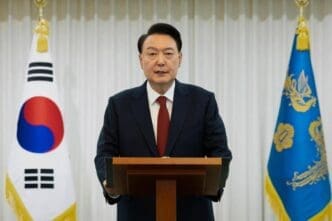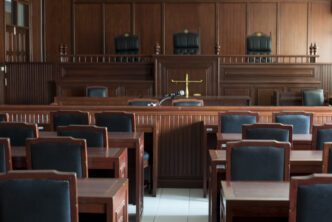In an unexpected development, a South Korean court has issued a warrant for the detention of impeached President Yoon Suk Yeol. The Corruption Investigation Office for High-Ranking Officials announced on Tuesday that the Seoul Western District Court granted the warrant due to Yoon’s controversial declaration of martial law earlier this month.
The move by South Korea’s anti-corruption agency comes amidst an ongoing probe into whether President Yoon’s actions constitute rebellion. Yoon, who has been impeached by an opposition-controlled National Assembly since December 14, faces scrutiny over his brief but impactful martial law decree.
Currently, the Constitutional Court is reviewing the impeachment to decide whether Yoon should be permanently removed from office or reinstated. Despite this legal proceeding, President Yoon has reportedly refused multiple times to cooperate with investigations, declining both to attend questioning sessions and to permit searches of his official residences.
Although Yoon holds presidential immunity from typical criminal charges, this protection does not extend to severe allegations such as rebellion or treason. His insistence on ignoring investigative requests places him under significant legal pressure, highlighting the gravity of the accusations and the court’s determination to proceed with the detention warrant.
This legal action marks a critical moment in South Korea’s political landscape, reflecting the judiciary’s active role in addressing potential governmental overreach and maintaining constitutional order.
The ongoing investigation and the court’s decision to issue a detention warrant underscore the complexities and challenges facing South Korea’s political system. As the nation awaits the Constitutional Court’s ruling, the outcome will likely have profound implications for the country’s governance and the accountability of public officials.








